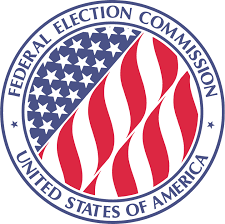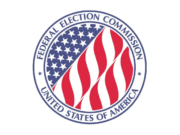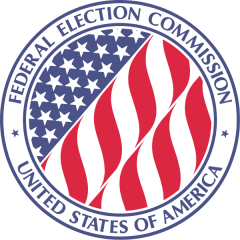Attn: Neven F. Stipanovic
Acting Assistant General Counsel
Federal Election Commission
999 E Street N.W.
Washington, D.C. 20463
On October 18, the Commission announced its intention to make “revisions to [its] rules” regarding online disclaimers “in order to adapt to new or emerging technologies.”[1] In response to that Notice, the Center for Competitive Politics (“CCP” or “Center”) respectfully submits these comments and urges the Commission to tread lightly when regulating in this sensitive and rapidly-evolving area.[2]
In addressing the topic of online disclaimers, the Commission does not write upon a blank slate. Most directly, present regulations state that “[a]ll public communications…made by a political committee; electronic mail of more than 500 substantively similar communications when sent by a political committee; and all Internet websites of political committees available to the general public…must include disclaimers.”[3] The definition of “public communication,” however, explicitly excludes “communications over the Internet, except for communications placed for a fee on another person’s Web site.”[4]
More generally, the Commission has long recognized that disclaimers may be inappropriate in certain circumstances. Consequently, existing regulations exclude small items, such as “[b]umper stickers, pins, buttons, pens” and the like,[5] as well as media where “the inclusion of a disclaimer would be impracticable,” such as “[s]kywriting, water towers, [and] wearing apparel.”[6]
These rules reflect the near-universal recognition that “[d]isclaimer… requirements may burden the ability to speak,”[7] and that in regulating political activity “more speech, not less, is the governing rule.”[8] This is no less true for electronic communications. After all, “[i]t must be remembered…that the [I]nternet is the new soapbox; it is the new town square.”[9] “[W]hatever the challenges of applying the Constitution to ever-advancing technology, the basic principles of freedom of speech and the press, like the First Amendment’s command, do not vary when a new and different medium for communication appears.”[10]
To that end, CCP has previously cautioned the Commission against adopting a new and unnecessarily burdensome regulatory regime singling out speech disseminated over the Internet. In particular, rules that essentially ban the use of existing, commercially-available products—such as small mobile advertisements that do not contain sufficient space for the statutory disclaimer—should be avoided for precisely the same reason that impractical disclaimers are excused in other contexts.[11]
To its credit, the FEC has, by and large, come down on the side of encouraging electronic communications, rather than stifling them with additional regulations. Last April, in MUR 6911 (“Lois Frankel for Congress, et al.”), the FEC declined to find reason to believe that federal law had been violated where a speaker failed to place disclaimers on communications sent via Twitter. In a Statement of Reasons offered by three commissioners, the regulated community was informed that tweets were neither regulable as emails, nor were Twitter profiles “websites” within the meaning of applicable regulations.[12] The controlling group of commissioners also determined that tweets were not public communications because they are not “placed for a fee on another person’s Web site.”[13] And while the Commission did not adopt a draft opinion in Advisory Opinion 2013-18 (“Revolution Messaging”), which would have concluded that “mobile phone ‘banner’ advertisements for federal political committees and other persons…qualif[ied] for the small items exception to the disclaimer requirements for public communications,”[14] the FEC also declined to adopt an alternative approach explicitly mandating the use of disclaimers in that circumstance.[15]
In short, these organizations, and others past and future, are required to ask this Commission for advisory opinions, or else bear the burden of defense against misinformed or politically-motivated complaints.[16] Such unpredictability is inconsistent with regulation of “speech uttered during a campaign for political office,” where “the First Amendment has its fullest and most urgent application.”[17] Consequently, as former Commissioner Cynthia Bauerly observed three years ago, “a rulemaking would be a far more productive and inclusive approach… [r]ather than the case-by-case approach” that currently holds sway.[18]
In undertaking a rulemaking, this Commission has an obligation to honestly recognize its limitations. This is not a body enjoying specific expertise in the area of Internet regulation, nor is there any serious reason to believe that the Commission enjoys unusual powers of prognostication. Consequently, requirements that specific technologies be employed should be avoided both because they are unlikely to be timely and because they will have the effect of calcifying technological development in only one area of the market—one at the center of the First Amendment’s protections.
To take only one example, it would be unwise to require “the display of disclaimers when a user ‘hovers’ or ‘rolls’ over the advertisement.”[19] There is no evidence that all relevant technologies even offer such “pop-up” spaces. Moreover, this new mandate would risk obscuring the actual content of a message when a user “hovers” over the communication. Finally, it will likely prove counterproductive. Obtrusive disclaimers will likely encourage the development of applications preventing the display of “pop-up” communications and other annoying material. If a significant chunk of the browsing public installs widgets that automatically shut off “rollover” text, then a communicant’s compliance with a disclaimer regulation will add cost while serving no governmental purpose.[20]
Consequently, the Center again suggests that any rule should be neutral not only as to message, but also medium. Only such a rule will be flexible enough to be applied in future circumstances while avoiding ambiguity that can be used by overzealous regulators and ideologues to chill political participation. Similarly, a bright-line rule applied without reference to specific technological products is far less likely to favor one form of communication over another or chill innovation.
Accordingly, for character-based paid Internet messaging, the Commission ought to “excuse disclaimers in any Internet advertising product where the number of characters needed for a disclaimer would exceed 4% of the characters available in the advertised product, exclusive of those reserved in the ad’s title.”[21] This rule has the benefit of being objective and easy to understand. It tracks the “impracticable” and “small items” exceptions already codified at 11 C.F.R. § 110.11(f). It makes it more likely that the online disclaimers that Americans view are “presented in a clear and conspicuous manner,” as required by 11 C.F.R. § 110.11(c)(1).[22] And it would exempt short-burst communications substantially similar to the “small-pixeled” speech raised by the Revolution Messaging AOR.[23]
Thus, by adopting the Center’s approach, the FEC would be acting consistent with its obligation to “formulate legally binding rules to fill in gaps based on policy judgments made by the agency.”[24] And because the CCP proposal is both content- and medium-neutral, such a rule would also comport with the Commission’s ongoing responsibility to act with care and precision in undertaking its unique mission: “the regulation of core constitutionally protected activity.”[25]
* * *
The Center appreciates the FEC’s consideration of these comments, and requests the opportunity to provide testimony at any future hearing held on this matter.
Respectfully submitted,
Allen Dickerson Zac Morgan
Legal Director Attorney
https://www.ifs.org/wp-content/uploads/2016/12/CCP-Comments-to-FEC-Notice-2016-13.pdf
[1] 81 Fed. Reg. 71647 (Oct. 18, 2016). The Notice announced a future public hearing and reopened the comment period regarding the Federal Election Commission’s 2011 “Advance Notice of Proposed Rulemaking…seeking comment on whether to revise its regulations concerning disclaimers on certain [I]nternet communications and, if so, on what changes should be made to those rules.”
[2] The Center was one of the “seven substantive comment[ers]” upon the initial 2011 Advanced Notice of Proposed Rulemaking (“ANPRM”) on this subject. 81 Fed. Reg. 71647. Those comments are incorporated herein by reference.
[3] 11 C.F.R. § 110.11(a)(1).
[4] 11 C.F.R. § 100.26.
[5] 11 C.F.R. § 110.11(f)(i).
[6] 11 C.F.R. § 111.11(f)(2).
[7] Citizens United v. Fed. Election Comm’n, 558 U.S. 310, 366 (2010); see also McIntyre v. Ohio Elections Comm’n, 514 U.S. 334 (1995) (striking down statute demanding affixture of a disclaimer).
[8] Ariz. Free Enter. Club’s Freedom Club PAC v. Bennett, 564 U.S. 721, 764 (2011) (internal citation and quotation marks omitted).
[9] Coal. for Secular Gov’t v. Gessler, 71 F. Supp. 3d 1176, 1182 (D. Colo. 2014); aff’d sub nom. Coal. for Secular Gov’t v. Williams, 815 F.3d 1267 (10th Cir. 2016); cert. denied sub nom. Williams v. Coal. for Secular Gov’t, 137 S. Ct. 173 (2016).
[10] Brown v. Entm’t Merchs. Ass’n, 564 U.S. 786, 790 (2011) (internal citation and quotation marks omitted).
[11] See Comments, Center for Competitive Politics on AO 2013-18 (Revolution Messaging, LLC) at 2-3 (noting that while pens “that contain a pull-out, printed inset” are available, “no one suggests that the ‘small item’ exemption cannot apply to ordinary pens”); available at: https://www.ifs.org/wp-content/uploads/2014/01/CCP-Comments-on-AO-2013-18-Revolution-Messaging-LLC.pdf
[12] Statement of Reasons of Chairman Matthew S. Petersen and Commissioners Lee E. Goodman and Caroline C. Hunter, MUR 6911 (April 12, 2016), available at: http://eqs.fec.gov/eqsdocsMUR/16044391240.pdf
[13] Nonetheless, one commissioner suggested that individual Twitter profiles are websites within the meaning of 11 C.F.R. § 110.11(a)(1). Statement of Reasons of Commissioner Ellen L. Weintraub, MUR 6911 (March 31, 2016), available at: http://eqs.fec.gov/eqsdocsMUR/16044391104.pdf
[14] Revised Draft B, AO 2013-18 (“Revolution Messaging”) at 1, available at: http://saos.fec.gov/aodocs/201318_2.pdf
[15] Revised Draft A, AO 2013-18, available at: http://saos.fec.gov/aodocs/201318_1.pdf
[16] See Citizens United v. Fed. Election Comm’n, 558 U.S. 310, 324 (2010) (noting the danger of “carving out…limited exemption[s] through an amorphous regulatory interpretation”); id. (“The First Amendment does not permit laws that force speakers to retain a campaign finance attorney…before discussing the most salient political issues of our day”).
[17] Eu v. San Francisco Cnty. Democratic Central Comm., 489 U.S. 214, 223 (1989) (internal citation and quotation marks omitted).
[18] Cynthia Bauerly, “The Revolution Will Be Tweeted and Tmbl’d and Txtd: New Technology and the Challenge for Campaign-Finance Regulation,” 44 U. Tol. L. Rev. 525, 534 (2013).
[19] 81 Fed. Reg. 71647.
[20] To this end, the Commission should specifically seek guidance from the technology industry. Given that industry behemoths like Google and Facebook have previously felt the need to seek bright-line rules from this Commission, see AO 2010-19 (Google); AO Request 2011-09 (Facebook), their participation is particularly vital before enshrining particular technological approaches in the Federal Register.
[21] Comments of the Center for Competitive Politics on Notice 2011-14 at 5, available at: http://sers.fec.gov/fosers/showpdf.htm?docid=98752
[22] See 52 U.S.C. § 30120(a) (disclaimer must “clearly state” relevant information).
[23] The Center also encourages the formal inclusion of “small mobile device banner ads” into the “small-item” exception found at 11 C.F.R. § 110.11(f)(1)(i).
[24] Van Hollen v. Fed. Election Comm’n, 811 F.3d 486, 495 (D.C. Cir. 2016) (citation, quotation marks, and emphasis omitted)
[25] AFL-CIO v. Fed. Election Comm’n, 333 F.3d 168, 170 (D.C. Cir. 2003).














